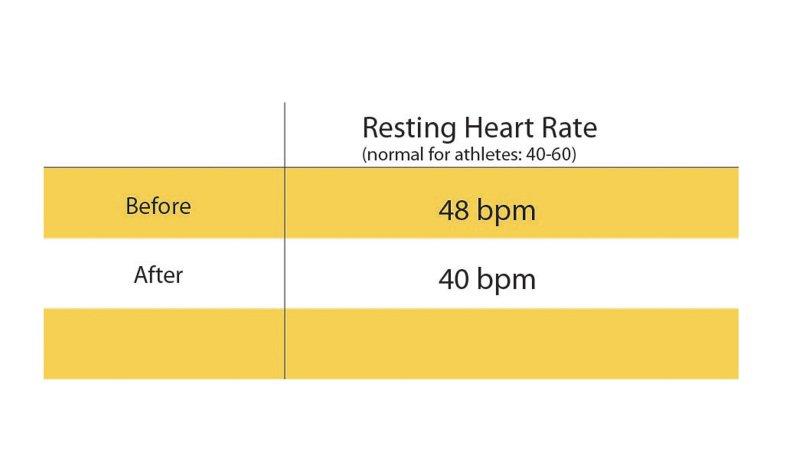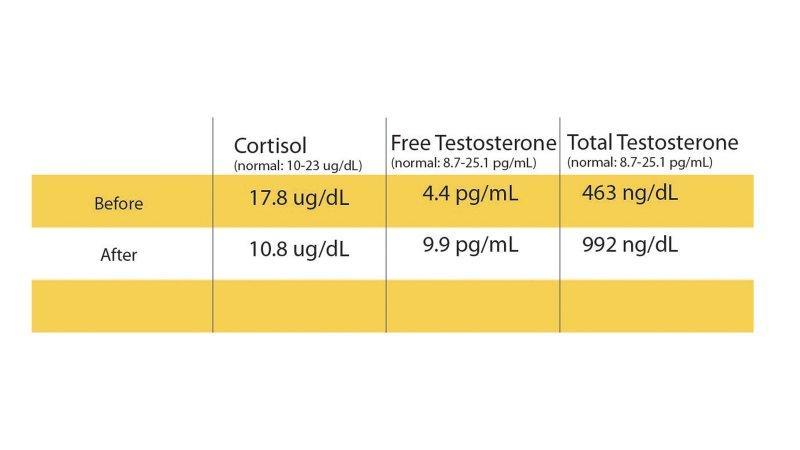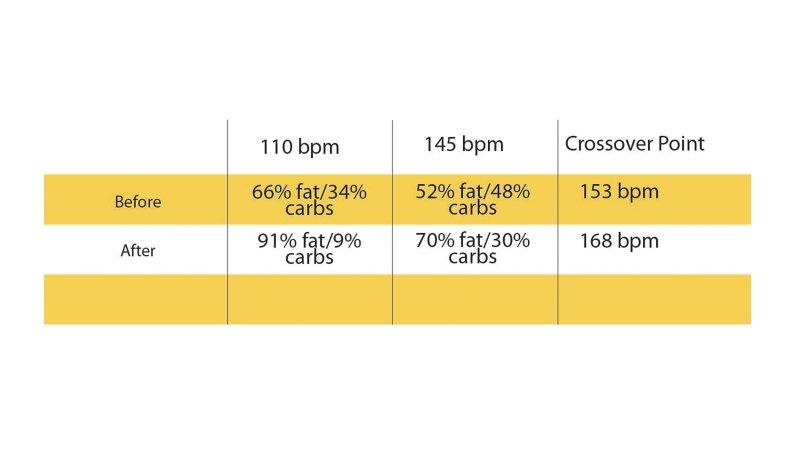brigadierbarty
Member
- Joined
- Jul 6, 2017
- Messages
- 75
for 29 days
This Is What Happens to Your Body on a Thru-Hike
tldr:



The last table is his fat/carb burning ratio at various exercise intensities. The crossover point is when you hit 50/50. Would have been interesting to see how his TSH and BMR changed. He noted that at the end of the hike he occasionally felt woozy while standing up fast, suggesting perhaps some thyroid suppression.
Endurance exercise gets a bad rap these days, but it should be stressed that the "cardio" most people do these days is not really aerobic exercise. It has an aerobic component, but it also has a large anaerobic component. It's the latter which is stressful. This Peat quote is relevant.
I wonder how much walking one can do to reap these benefits without causing thyroid suppression. Obviously 10 hours a day is overkill, but maybe 2-3 hours? I also wonder to what extent the hike was anaerobic for the author. The Colorado trail involves a total ascent of over 16 miles, which I guess could introduce an anaerobic component depending on how well/poorly developed your aerobic system is.
Have any of you done strictly low intensity aerobic exercise (eg heart rate under, say, 120 at all times)? How did it impact your health and labs? I've been reading a lot about Phil Maffetone's ideas recently and I'm thinking about incorporating an hour or two of walking daily. One big area where Maffetone and Peat differ is on fat/carb burning. Maffetone believes burning fat is healthier. Not sure how much I agree with that, but his ideas on exercise are interesting and seem consistent with Peat's to a large extent.
This Is What Happens to Your Body on a Thru-Hike
tldr:



The last table is his fat/carb burning ratio at various exercise intensities. The crossover point is when you hit 50/50. Would have been interesting to see how his TSH and BMR changed. He noted that at the end of the hike he occasionally felt woozy while standing up fast, suggesting perhaps some thyroid suppression.
Endurance exercise gets a bad rap these days, but it should be stressed that the "cardio" most people do these days is not really aerobic exercise. It has an aerobic component, but it also has a large anaerobic component. It's the latter which is stressful. This Peat quote is relevant.
I’m not sure who introduced the term “aerobic” to describe the state of anaerobic metabolism that develops during stressful exercise, but it has had many harmful repercussions.
I wonder how much walking one can do to reap these benefits without causing thyroid suppression. Obviously 10 hours a day is overkill, but maybe 2-3 hours? I also wonder to what extent the hike was anaerobic for the author. The Colorado trail involves a total ascent of over 16 miles, which I guess could introduce an anaerobic component depending on how well/poorly developed your aerobic system is.
Have any of you done strictly low intensity aerobic exercise (eg heart rate under, say, 120 at all times)? How did it impact your health and labs? I've been reading a lot about Phil Maffetone's ideas recently and I'm thinking about incorporating an hour or two of walking daily. One big area where Maffetone and Peat differ is on fat/carb burning. Maffetone believes burning fat is healthier. Not sure how much I agree with that, but his ideas on exercise are interesting and seem consistent with Peat's to a large extent.
Last edited:
